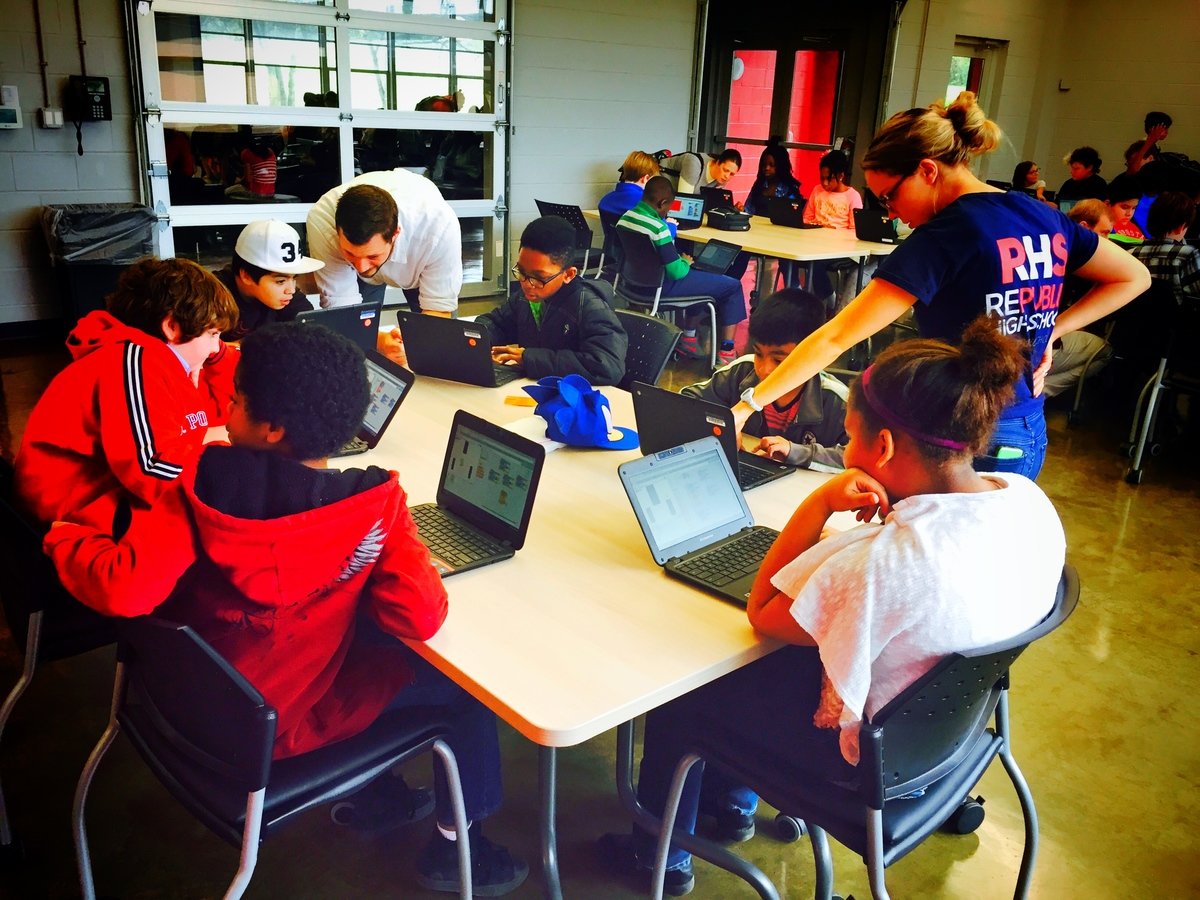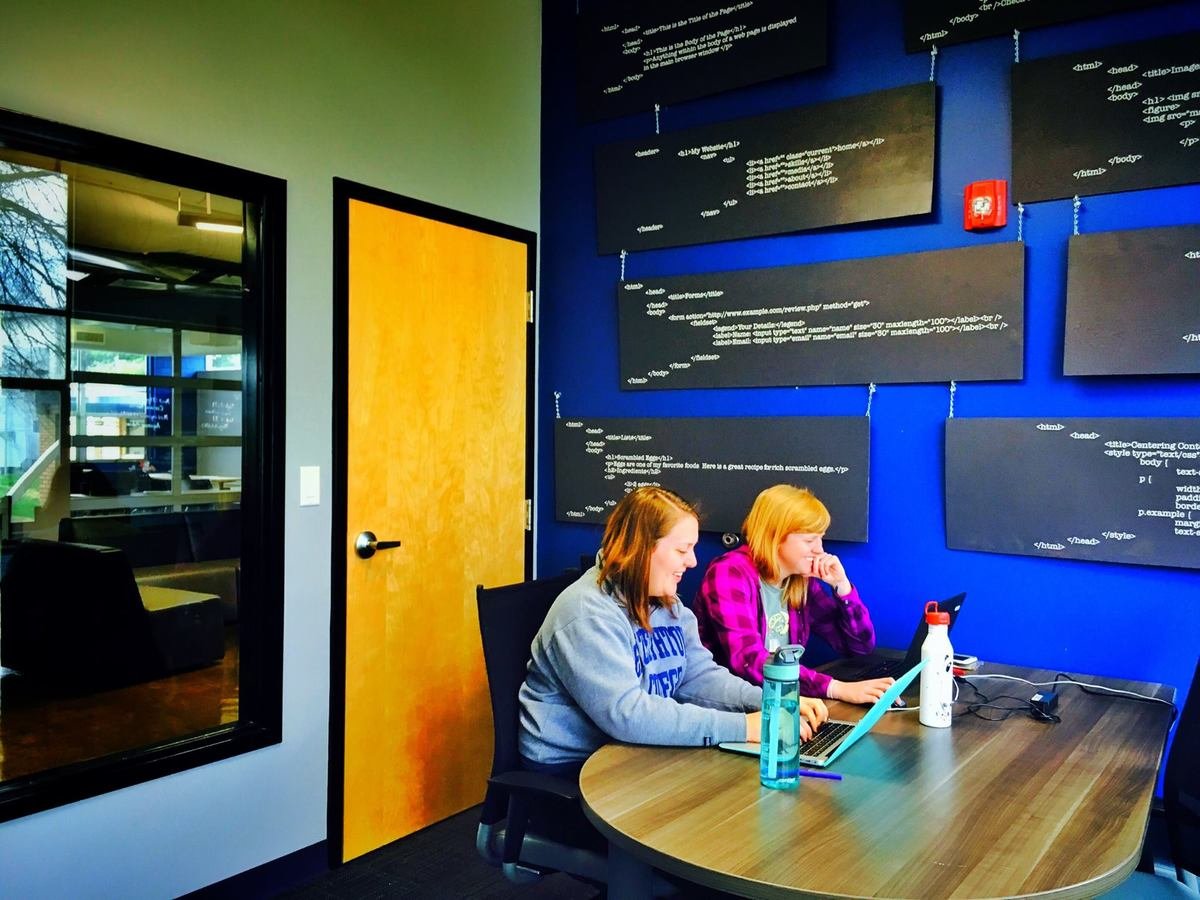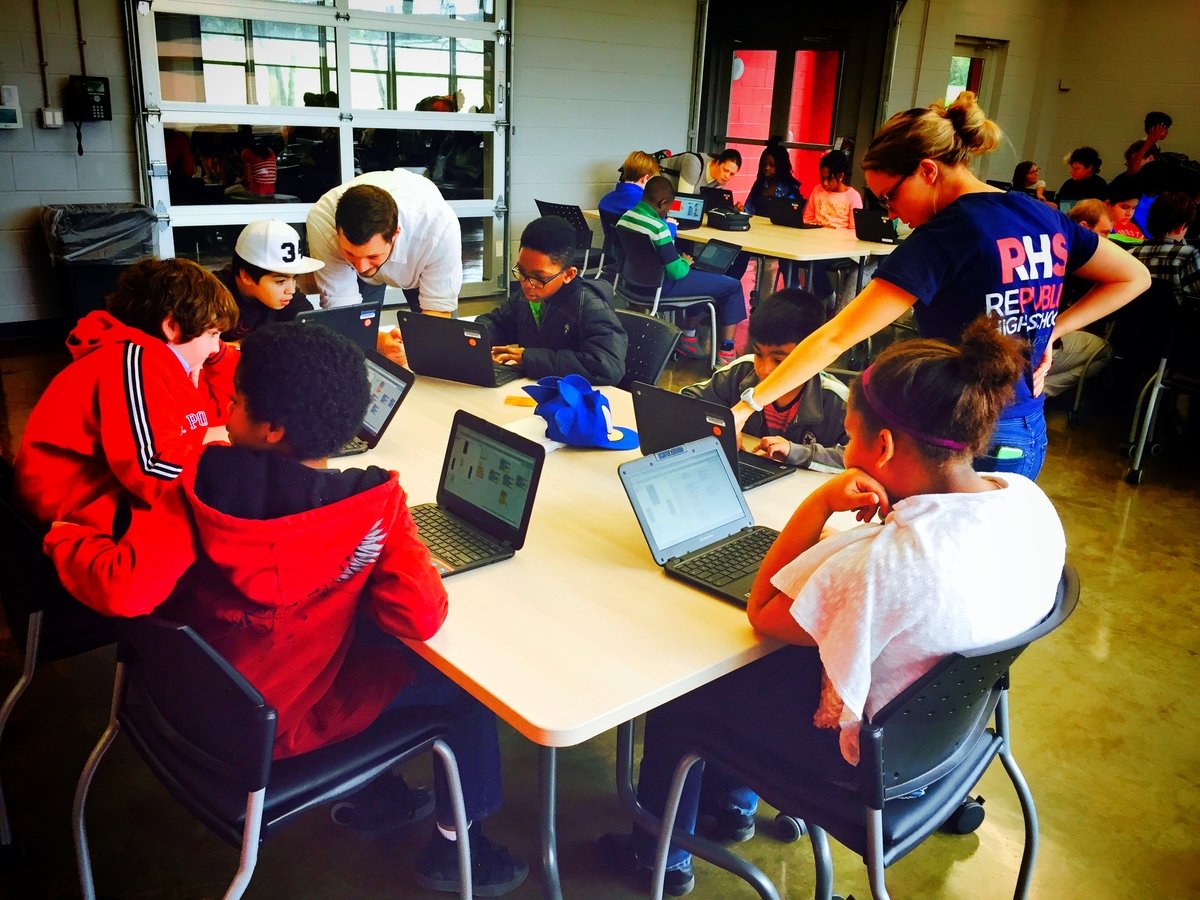
HS2 Interactive Video Call:
Week of 10/31

Happy Halloween!

Agenda
Introduction and Updates: 5 min
Preview of HS2U3 and 4: 10 min
Introduction to New Content:5 min
Work Time - 25 min
Wrap up: 5 min
Objectives

- Display records on app screen
- Preview HS2U3 and 4
- Create a record in a database using read record
Call Norms

- Ask questions. If you have a question, other people do too.
- Be present and actively participate during the call.
- Give feedback on what is helping you and what you would like to see change.
- Submit questions 24 hours ahead on Slack.
Calendar
10/24
Project 2 Analysis
10/31
Rollout of New Content
11/7
Problem Solving Independently
11/14
Calendar App
11/21
Problem Solving Rubric
11/28
Calendar App Presentation
HS2U3 and 4

HS2U3 Overview
In this course, scholars will apply their knowledge of computer science to the field of social entrepreneurship. During this unit, scholars will explore case studies of companies to develop a definition of successful social entrepreneurs. Scholars will explore local and global problems that affect them and determine creative technological solutions to those problems. Scholars will take best practices from these companies and apply them to their budding ideas. By the end of the unit, scholars will have developed a solution to a social problem and articulated the value and audience of their solution in a business plan.
HS2U3 Lesson Structure
What is social entrepreneurship?
Case Studies
Project 1: Lightning Talk
Project 2: Startup Plan
HS2U4 Overview
This unit is centered around developing a singular solution to a stated problem, likely the one developed in the previous unit, and bringing it to life via prototype. The prototype should be a working model of their solution, even if not fully built or scaled. The caveat being, database structures do not need to be in place. The first third of this unit will be centered around developing collaborative brainstorming skills. Once scholars settle on a specific solution, they must build it. Solutions should be driven to one of three possible domains, a website or app that allows users to store and retrieve information, a website or app that analyzes and extracts meaning from data, and/or something that interacts with the physical world (this will be heavily dependent on the financial resources of the institution).
HS2U4 Lesson Structure
Mobile Justice
Case Studies
Project 1: Wireframe
Project 2: Prototype
Calendar App
Read Record

By the end of today...
If you haven't already:
- All the screens and design elements needed to create a calendar
- A created record when the user enters an event
Today's task:
- Read the records in the database and display them on the app screen
Wrap Up
